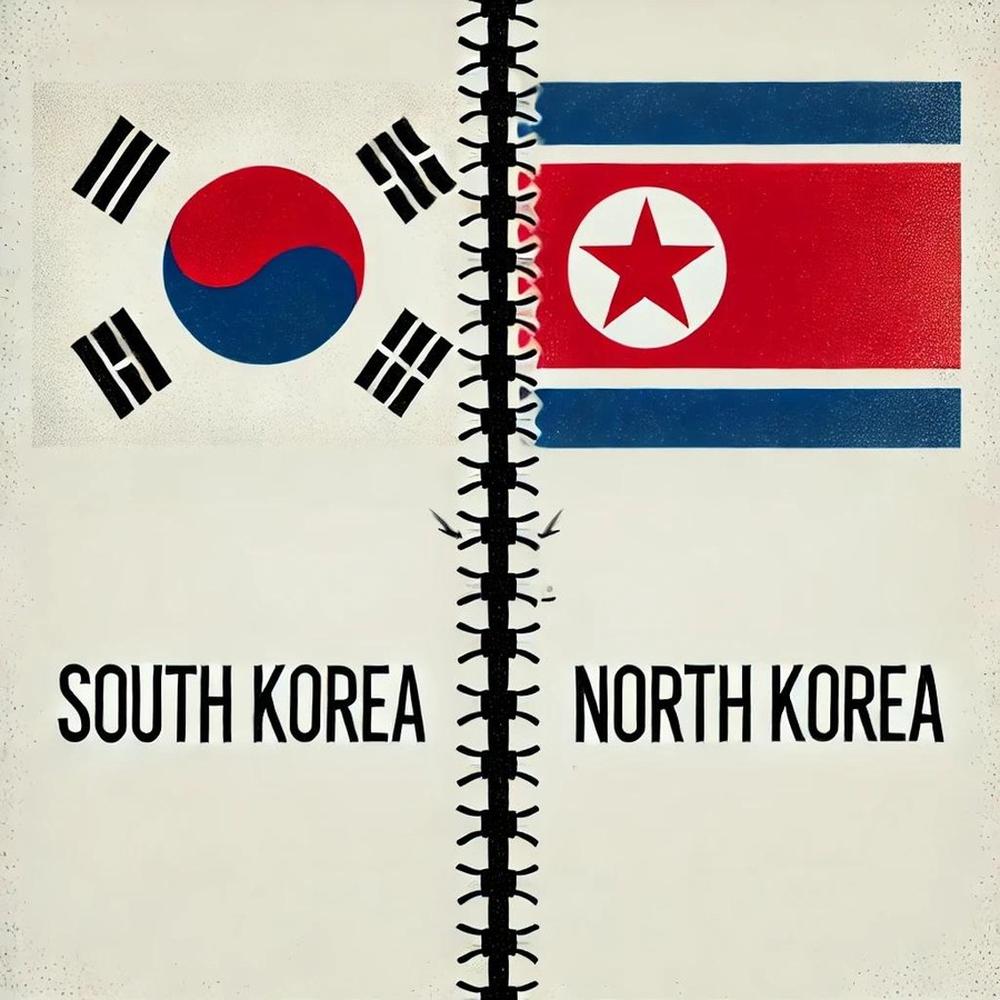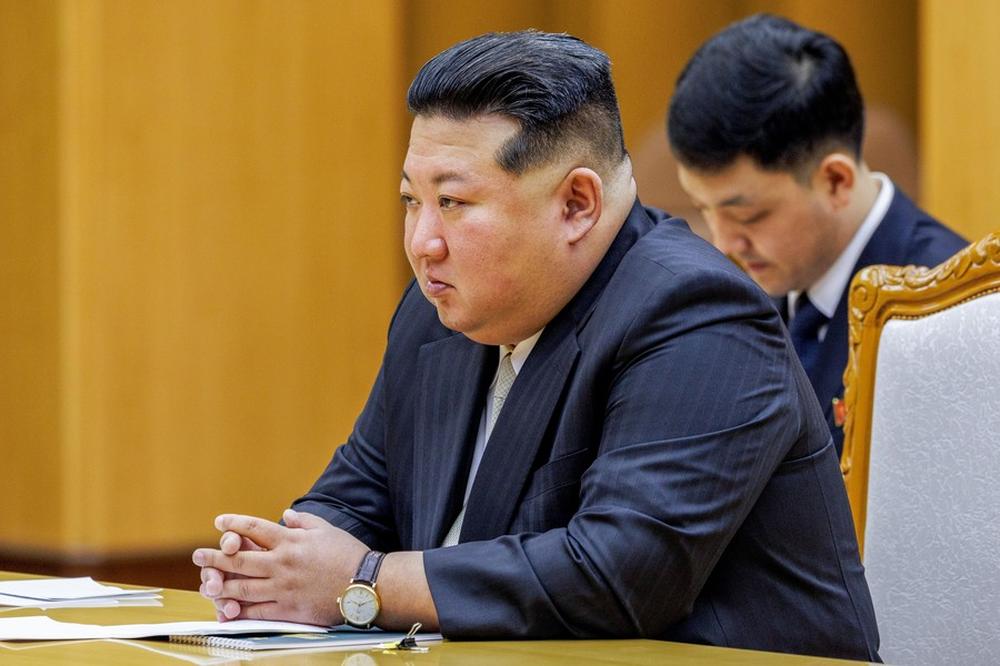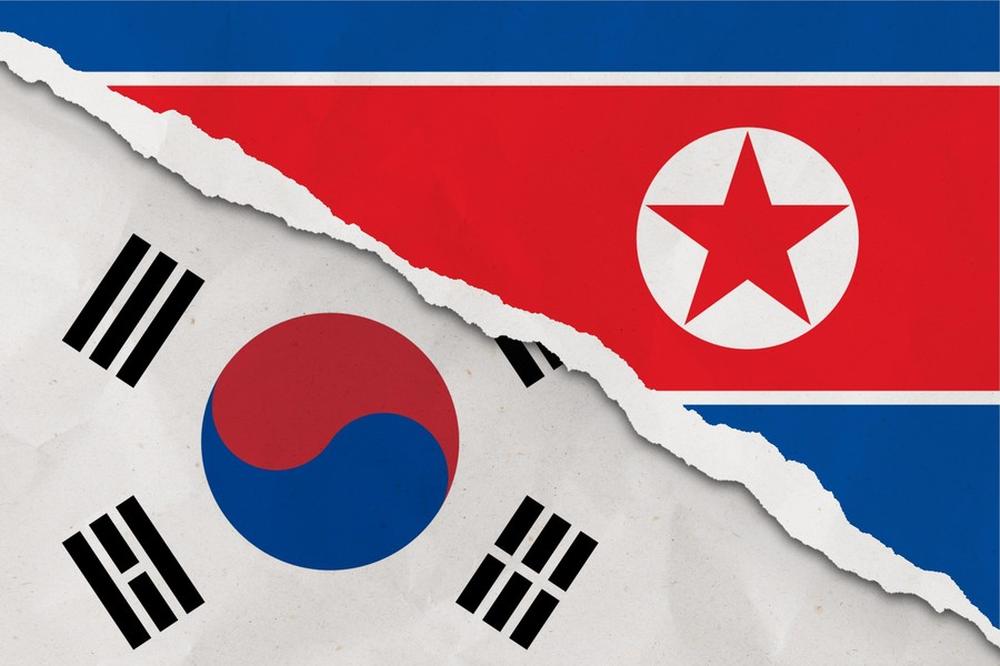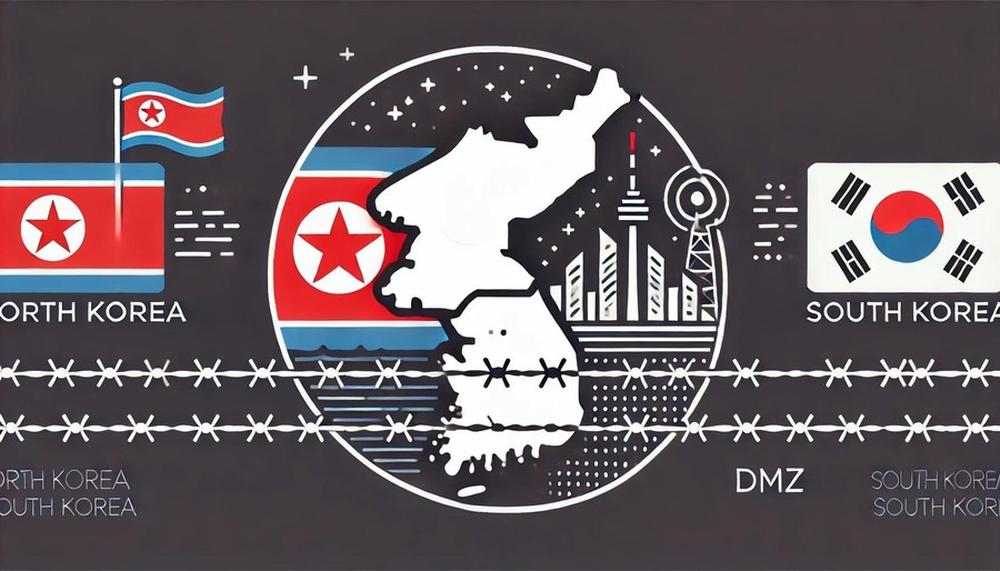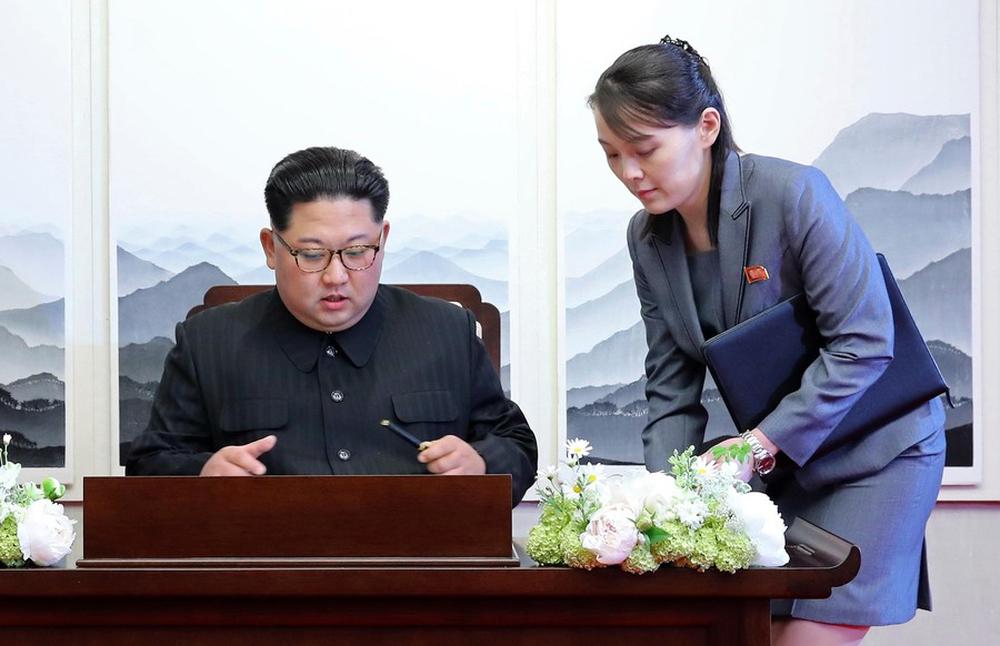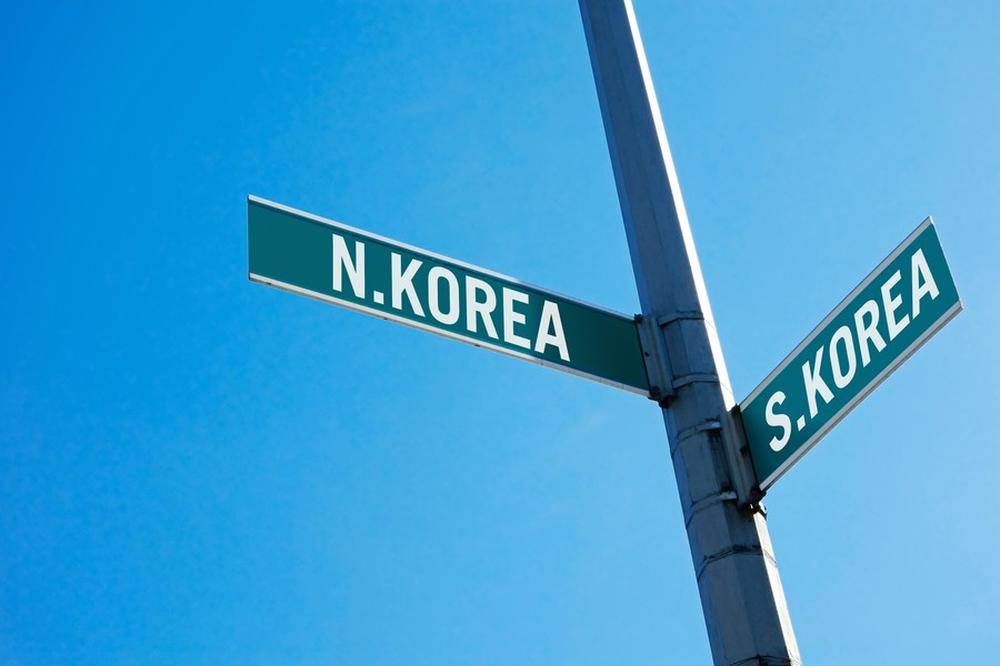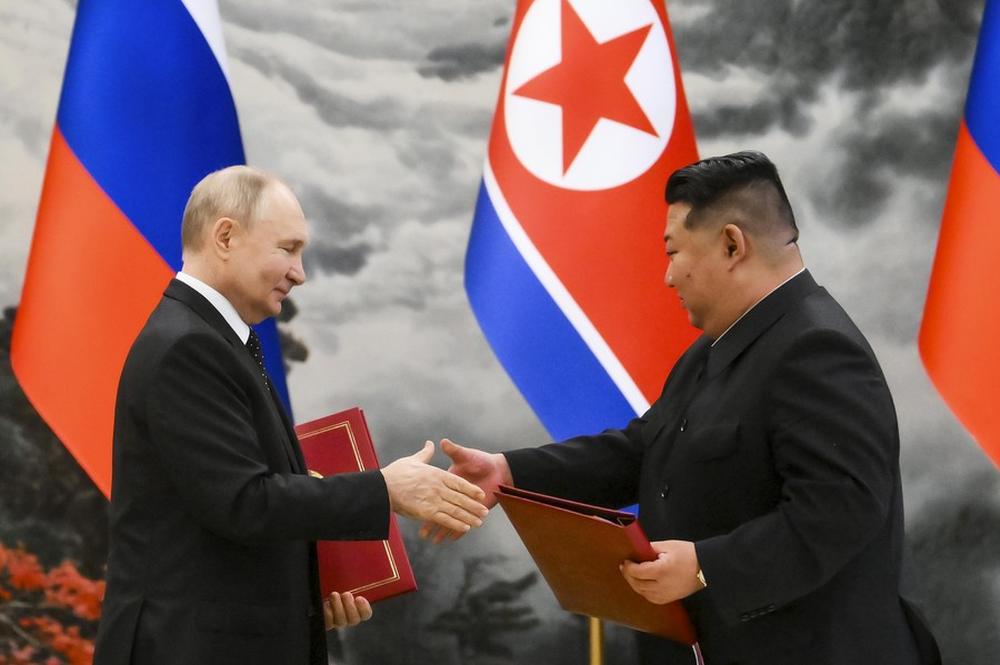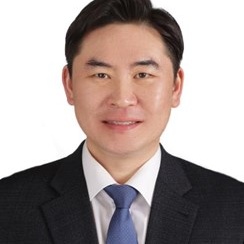
- #Global Issues
- #Inter-Korean Relations
- #North Korea
- #South Korea
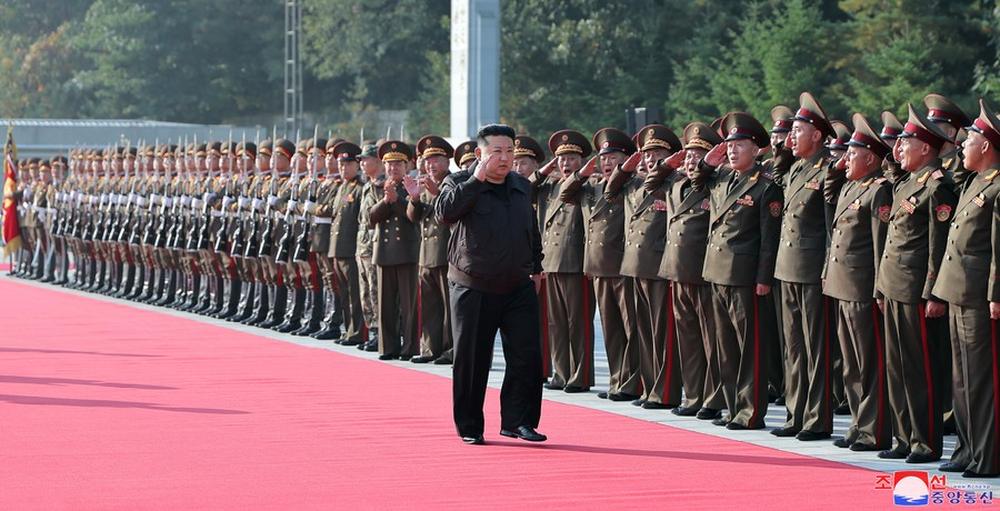
▶ North Korea’s Two-State Approach deepens division and destabilizes the region by blocking external influences and framing South Korea as a hostile state
▶ South Korea’s 8.15 Unification Doctrine counters this with value-based stratedy and international cooperation, focusing on freedom, human rights, and democracy.
▶ Its success hinges on global solidarity and overcoming challenges posed by shifting geopolitics and revisionist powers.
In December 2023, North Korea declared the South-North relationship as one of "hostile and belligerent states" and adopted the strategic "Two-State Approach." This approach was intended to undermine unification efforts and the international legitimacy of South Korea’s unification diplomacy rooted in its constitution. By emphasizing the "New Cold War" narrative and strengthening its alignment with Russia and China, North Korea seeks to entrench the division of the Korean Peninsula and bolster its regime's survival by designating South Korea as a hostile state. This "two-state approach" not only contravenes the spirit of the 1991 Basic Agreement between the two Koreas but also poses significant challenges to regional stability and international norms.
In response, the ROK unveiled the “8.15 Unification Doctrine” in 2024, a visionary policy aimed at countering North Korea's divisive strategies and promoting a unified Korea grounded in freedom, democracy, and human rights. This doctrine represents a renewed commitment to values-based diplomacy and strategic cooperation with the international community. Most importantly, this doctrine takes an innovative approach by shifting the focus of unification from the North Korean regime to the North Korean "people." It challenges the legitimacy of the North Korean regime, which suppresses human rights and engages in unlawful acts, while seeking to strengthen the solidarity of the international community around the vision of a unified and democratic Korean Peninsula. However, the implementation of this strategy faces emerging challenges in the context of a rapidly changing global political environment.
North Korea’s Two-State Approach: A Threat to Unification
North Korea's two-state approach is not merely rhetorical, but a calculated policy aimed at weakening unification efforts and further isolating South Korea. The core elements of this strategy are as follows: First, institutionalizing division. By framing itself and South Korea as separate, independent states, North Korea seeks to weaken the unified identity of the Korean people and undermine the legitimacy of the Republic of Korea. Second, blocking the influx of external information, particularly the Korean Wave (Hallyu). The spread of South Korean popular culture (dramas, K-pop, fashion, language, etc.) within North Korea exposes its citizens to the stark differences in development and freedom between the two Koreas. Viewing the spread of Hallyu as a threat to its regime, North Korea enacted the "Three Major Repressive Laws of Kim Jong Un," resorting to fear-based rule and human rights abuses, including severe punishments for even young students.[1] Third, normalizing hostile relations between the two Koreas. The two-state approach frames South Korea as an existential threat, serving as a tool to justify North Korea’s military provocations and nuclear weapons development. These elements collectively serve to perpetuate division on the Korean Peninsula and pose significant obstacles to regional stability.
The 8.15 Unification Doctrine: A Strategic Counterweight
In the face of these challenges, the 8.15 Unification Doctrine offers a proactive, value-based response. Grounded in the principles of freedom, democracy, and human rights, this doctrine redefines unification while emphasizing the importance of international cooperation. First, it involves the reframing of unification rhetoric. The doctrine reestablishes unification as a process based on shared values rather than mere geopolitical negotiations, directly countering North Korea’s divisive narratives. Second, it focuses on building international solidarity. Through value-centered diplomacy, the doctrine fosters solidarity with nations that prioritize liberal democracy, spreading the vision of unification and isolating the North Korean regime on the global stage. Third, it seeks to promote shared identity. By emphasizing cultural and historical unity, it refutes the two-state ideology and strengthens the legitimacy of a democratic and unified Korean Peninsula. Most importantly, the South Korean government has redefined the focus of unification from the North Korean regime to the North Korean people, recognizing them as the central agents of unification. This represents a significant shift in unification diplomacy, expanding its perspective to include international solidarity for improving the human rights of North Korean citizens. Ultimately, this aligns efforts for unification with the broader goal of enhancing “human security” for individuals as members of the global human community.
Challenges Ahead: Navigating a Turbulent Global Landscape
South Korea's 8.15 Unification Doctrine offers a strong countermeasure to North Korea’s two-state approach. However, implementing a value-based unification strategy rooted in international cooperation presents notable challenges within the evolving global political environment. First, the shifting dynamics of value-based global leadership. The election of Donald Trump as the 47th President of the United States reflects changes in the US-led democratic order. With the "Democracy versus Autocracy" narrative becoming less central in international relations, garnering global support for value-centered policies, such as unification diplomacy, may become more complex. Second, the strengthening of revisionist forces. Enhanced political and military coordination among nations like Russia, North Korea, Iran, and China increasingly challenges the global West. North Korea’s military support for Russia in the war in Ukraine further solidifies these alliances, heightening security challenges for South Korea and its allies. Third, the recalibration of multilateral frameworks. As international power structures evolve, institutions like the UN and NATO face difficulties in maintaining their effectiveness. This could create additional hurdles in securing international support for significant global issues, including Korean unification. Fourth, domestic consensus and economic challenges. Within South Korea, concerns over the social costs of unification need to be addressed, and public awareness about its importance must be improved. Communicating the long-term value of a unification strategy based on liberal democracy and fostering a shared vision with the public remain essential.
Conclusion: A Unification Diplomacy for the Future
North Korea’s two-state approach is not merely a challenge to South Korea but a test of the international community’s commitment to peace, freedom, and human rights. The 8.15 Unification Doctrine offers a powerful counter to North Korea’s divisive strategy, but its success depends on South Korea’s ability to adapt to the evolving global environment and secure the support of allies and the international community. South Korea must maintain strategic clarity to sustain international support even as the “Democracy versus Autocracy” narrative wanes and strengthen its political resilience in response to the growing influence of revisionist forces. Ultimately, the vision of a democratically unified Korean Peninsula serves as a beacon of hope—not only for Koreans but for all who cherish freedom and human dignity. In this era of uncertainty, South Korea and its allies must take decisive and clear actions to transform the Korean Peninsula into a symbol of peace and unity.
[1] [Law on Rejecting Reactionary Ideology and Culture • 반동사상문화배격법](2020), [Law on Ensuring Youth Education • 청년교양보장법](2021), [Law on the Protection of Pyongyang Cultural Language • 평양문화어보호법](2023).

Dr. HA Kyoung-Seok (Kris) is a Research Fellow at the Institute for National Security Strategy (INSS) in Seoul, Korea. His research areas include the Multilateral Security Strategy, ROK-US Relations, and United Nations politics. Previously, Dr. Ha was a Research Professor at the Ilmin International Relations Institute, Korea University, and Lecturer at the Chungbuk National University of Korea. He was a Visiting Research Collaborator (pre-doc) at the Princeton School of Public and International Affairs (SPIA) and a Visiting Fellow at the Center for International Security Studies (CISS), Princeton University. Dr. Ha’s recent publications include, “2024 U.S. Presidential Election and the Republic of Korea’s Security Risks” (2024); “Liberal International Order and the United Nations after the Ukraine-Russia War: The Advent of a New Global Order?” (2022).
